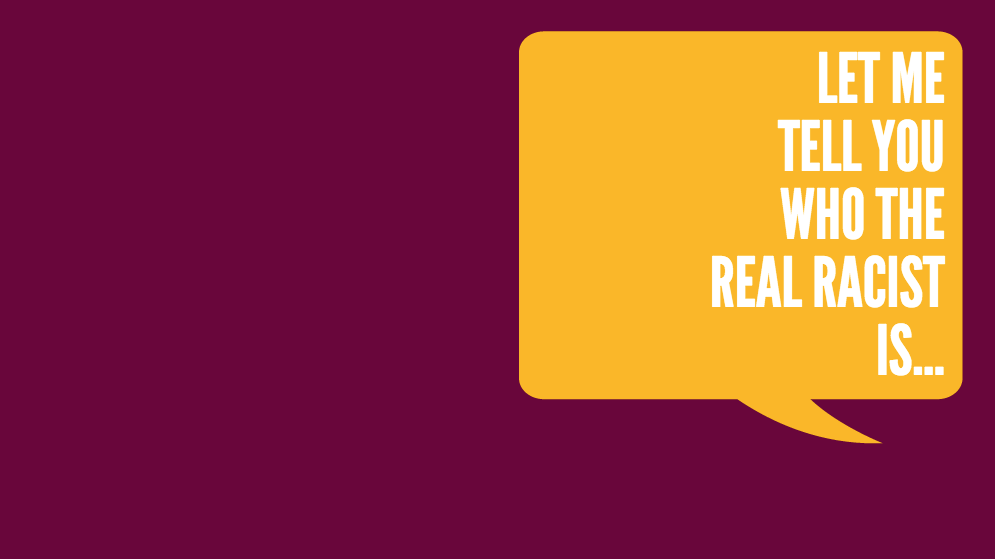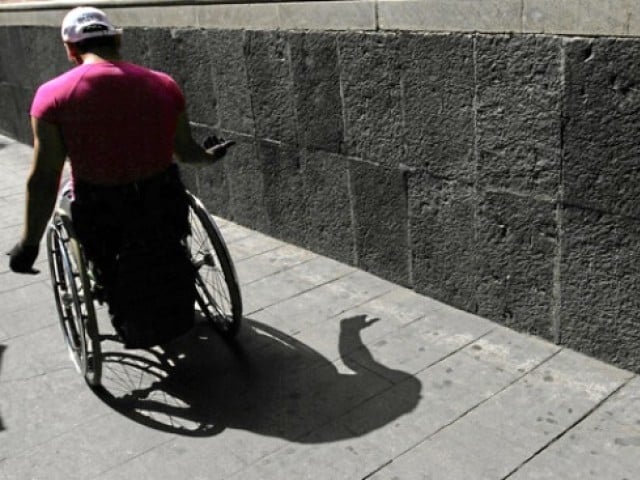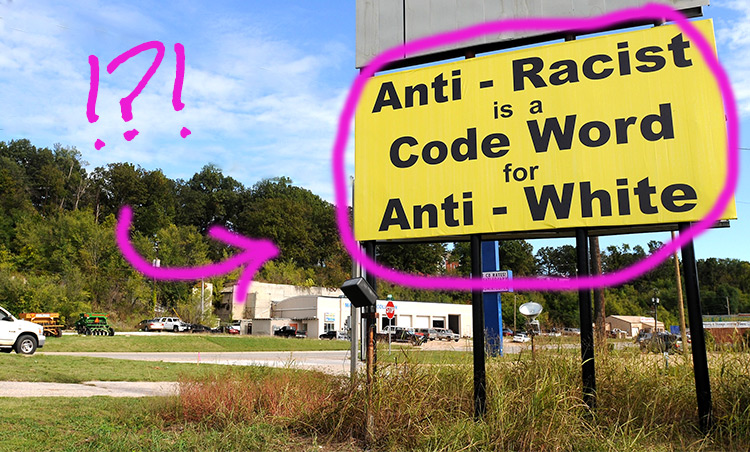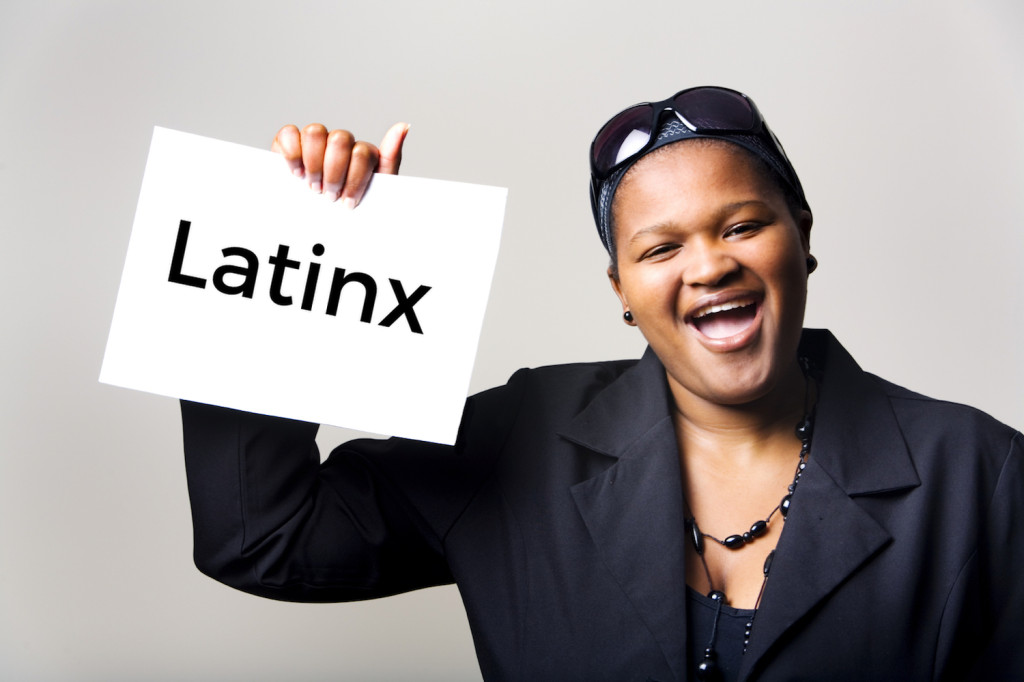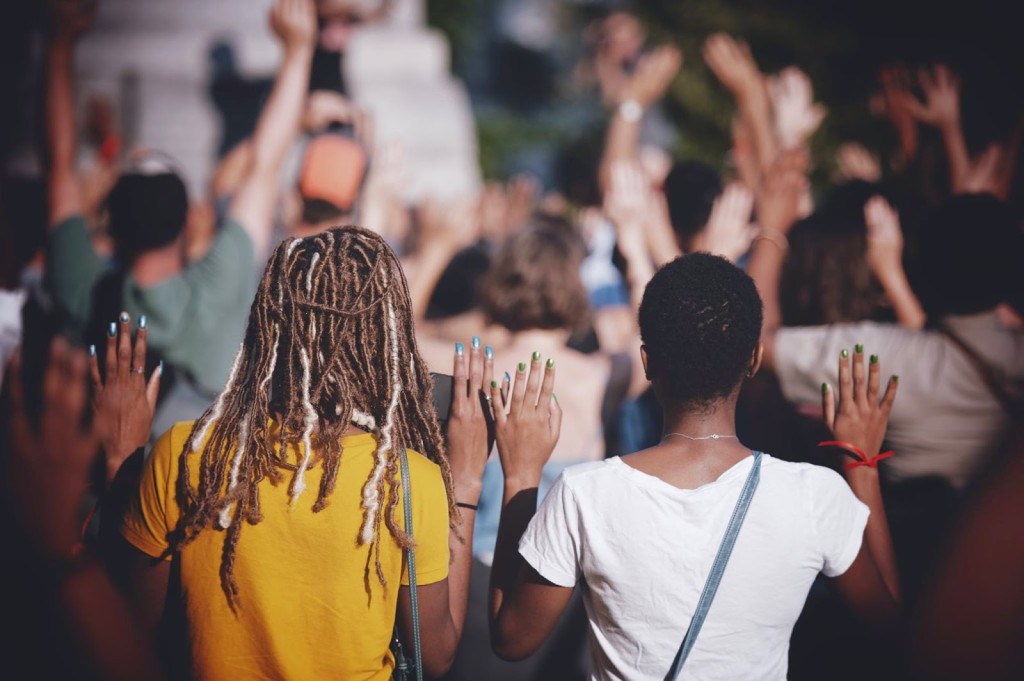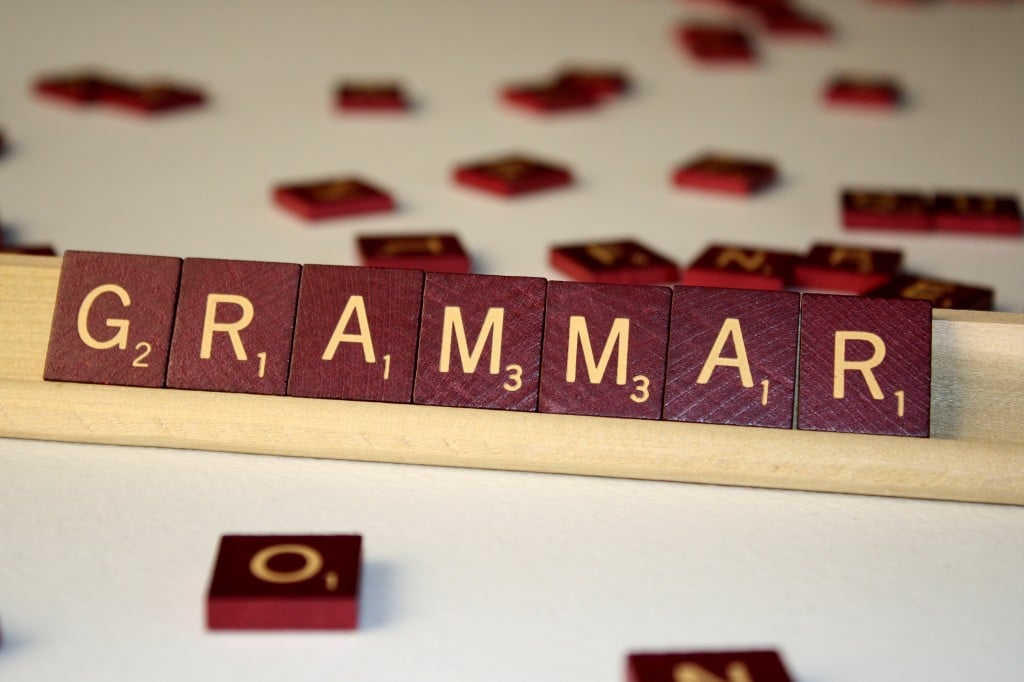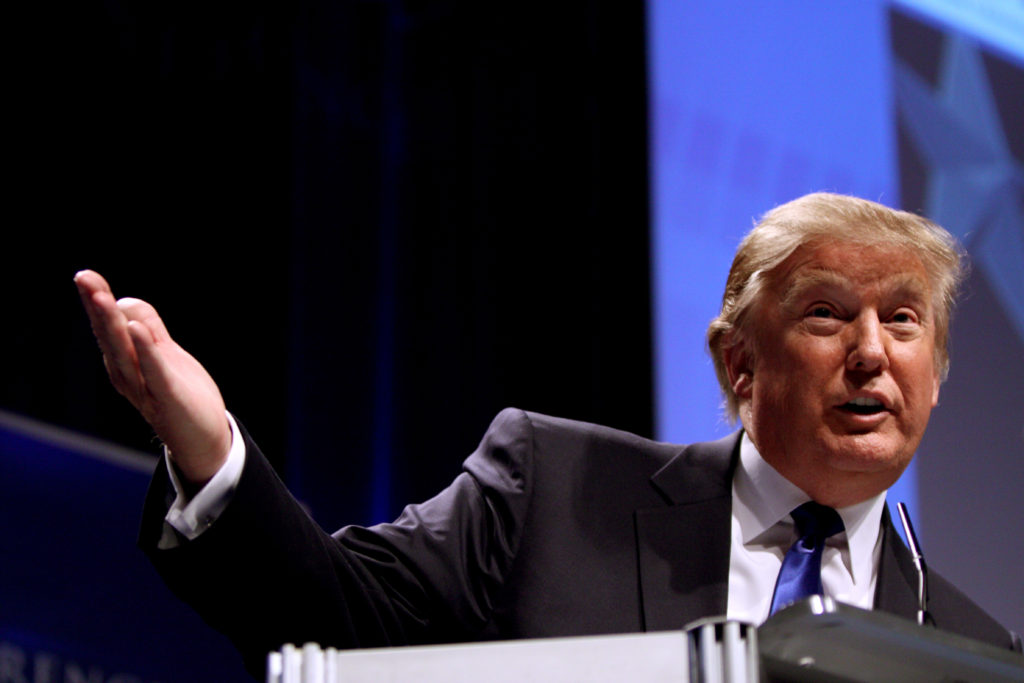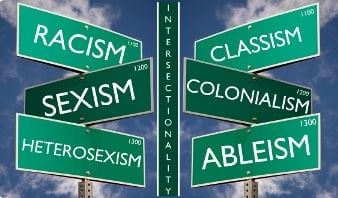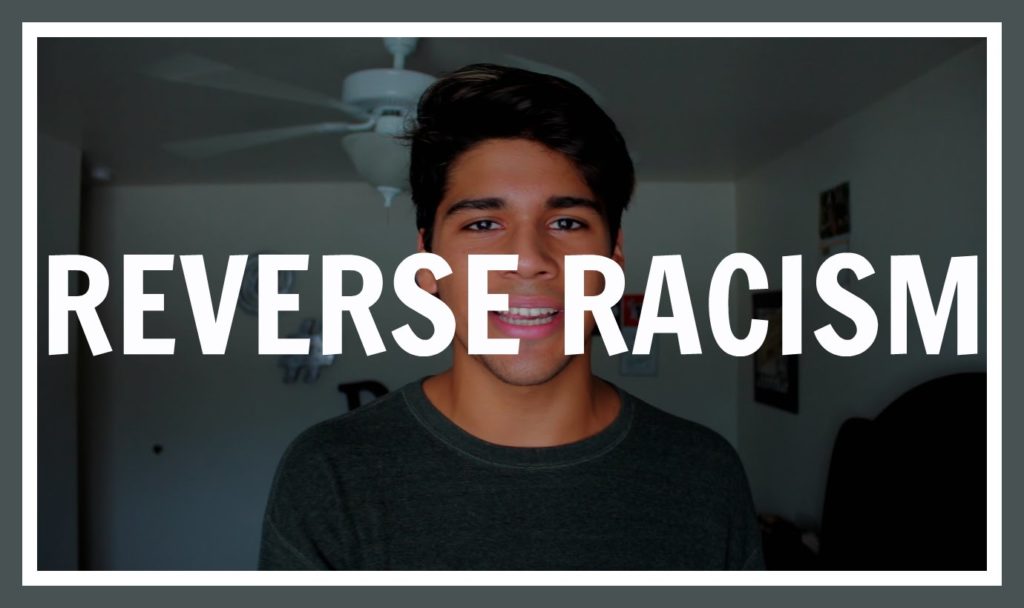Search results for: privilege
13 Questions Most Cis Men Will Never Have to Ask Themselves
So many cis men have a difficult time accepting that they have male privilege. This article provides concrete, accessible examples of that privilege and it’s impact.
Read MoreWhy It’s Not Racist When People of Color Point Out White Supremacy in White People’s Actions
When you deny white privilege, you reflect a fundamental misunderstanding about racism. And you also distort and devalue the experience of racism in the US. So let’s examine racism and privilege and get to what’s really going on here. Find out why pointing out privilege and oppression is constructive, not insulting, and how doing so helps the fight for justice.
Read More10 Ways to Avoid Everyday Ableism
Superficial circumstances, especially ones as obvious as physical disability, can obscure who a person really is. But humanity should be shared, not allocated in increments based on privilege or experiences. And since able-bodied privilege is one of the most unrecognizable forms of privilege in society, today we’re going to talk about ten ways that you can avoid ableism in everyday life.
Read MoreHow to Grow Your Daily Practice as a Feminist
The work of being a feminist doesn’t stop once we claim to be feminists. Years of socialization will not suddenly vanish from one’s mind or way of knowing and experiencing the world. So it’s important we be honest with ourselves about messages we’ve internalized, recognize our privilege, and question our assumptions in order to practice an inclusive, accountable, and progressive feminism.
Read More3 Reasons Why Being Anti-Racist Isn’t Code for Being Anti-White
It seems like every time anti-racism activists speak up about their work, there is some level of pushback claiming that the work is “attacking white people.” But the thing is, that’s just not true. Anti-racism is not against white people. To clarify what anti-racism is really about, here are three things that the movement actually works to dismantle.
Read MoreThe Pitfalls of Becoming a Complacent Ally (And What to Do If You’ve Made a Mistake)
We’ve all been there – just when you think you’ve become a good ally, somebody tells you that you’ve done or said something problematic. Here’s the good news: nobody’s perfect, so you’re not alone. Perfection is not what’s important, and being an ally doesn’t mean you can do no wrong. Read about what is important, and learn what to do if you make a mistake.
Read More6 ‘Anti-Racist’ Buzzwords That Don’t Actually Change White Supremacy
“We all deserve equal rights!” These words help white people feel comfortable with change – but this shows how they normalize white supremacy more than they challenge it.
Read More5 Ways to Avoid Common Ally Pitfalls by Learning From Your Mistakes
No ally is “perfect” – so like this author, you’ve probably made some mistakes. This author’s getting real about his missteps, and we can all learn from the lessons he took away from them.
Read MoreBlack Lives Matter: 25+ Resources for Your Conversations on Police Violence
How do you handle conversations on police violence and racism? This list can help, with info on structural racism, allyship, self-care for Black folks, and more.
Read MoreThe Case For ‘Latinx’ — And Why This Term Matters For Intersectionality
You might have noticed that we use “Latinx” instead of “Latino/a.” Here are two scholars on why Latinx is more than just a buzzword – it’s an important way to recognize intersectionality in Latinx communities.
Read MoreMore Than a Theory, More Than a Trend: Making Your White Anti-Racism a Lifestyle Commitment
If your white anti-racism allyship is more about talking the talk than walking the walk, then people of color need you to reevaluate and come back when your anti-racism is a lifestyle commitment. Learn how.
Read More7 Practical Ways Straight Parents Can Support Their Queer Children
If your child is queer, it can be tough to know how to support them – but your support can make a big difference. Try these helpful strategies.
Read MoreWhy Do White People Love Claiming Non-White Heritage?
Have you ever witnessed a white person claiming membership to another racial group? Rachel Dolezal got a lot of attention for it, but she’s not the only one. Celia Edell is breaking down what’s going on – and why it’s harmful.
Read MoreYou Say You Stand in Solidarity – But Do You Know What That Really Means?
How do you show your solidarity? Here’s what it really takes to make sure your actions match the word.
Read MoreWhy Grammar Snobbery Has No Place in the Movement
There’s a difference between appreciating language and being a snob. And the last place that we need grammar snobbery is in social justice movements. And not just because getting hung up on subject-predicate agreement is distracting to the job at hand, but also because purporting one form of English as elite is inherently oppressive. So let’s talk about why.
Read MoreHow Donald Trump’s Election Reveals the Danger of White Male Fragility
What’s white male fragility? Take a look at our president-elect and you’ll have a good idea. Here’s what we’re up against.
Read More10 Common Things Well-Intentioned Allies Do That Are Actually Counterproductive
You’re trying your best to be a supportive ally – so it might be hard to realize that well-meaning people make mistakes. Lots of them. Here’s what you need to know to correct these common behaviors.
Read MoreEquality Is Not Enough: What the Classroom Has Taught Me About Justice
Students have come to understand “fairness” as simply equal treatment. You’re familiar with this playground mentality of fairness: “I get two crackers, and you two crackers.” But here’s the thing: Treating everyone exactly the same actually is not fair. What equal treatment does do is erase our differences and promote privilege. Let me break it down.
Read MoreKyriarchy 101: We’re Not Just Fighting the Patriarchy Anymore
We need a word to describe the complex social order that keeps these intersecting oppressions in place. Kyriarchy is an excellent word for this concept.
Read MoreHere’s Why Reverse Racism Isn’t Real
“That’s reverse racism!” Next time you think something’s “racist against white people,” remember Damian Alonso’s words here.
Read More


